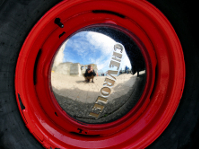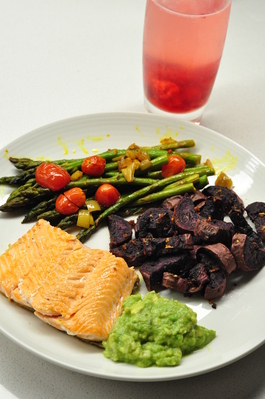This book is a sequel to the amazing Machine of Death which was released with great success in 2010. Like the original, it's a collection of stories based around a very simple premise: the idea that there exists a machine which given a drop of your blood will give you a slip of paper with a few words describing how you will die. It's always correct but it doesn't give a date and it can be frustratingly vague. The stories are contributed by random Internet people and are selected and edited by a team of web-publishing superheros.
The new book takes the premise in dozens of wonderful new directions and although some stories are less polished than others, most are truly fantastic. The work switches back and forth between hilarious and surprisingly moving very quickly.
I really like the idea of a collection of work all based on a particular constraint. The Machine of Death provides a surprisingly effective vehicle for all sorts of storytelling styles and the issues explored are incredibly diverse. Rather than limit the authors, the constraint opens up huge realms of creativity.
I highly recommend both books. You can download a PDF of the whole first book for free from their website (and an eight-story sample of the second). But I do encourage you to buy the books (in whatever format suits you) as you'll be supporting independent publishing.



